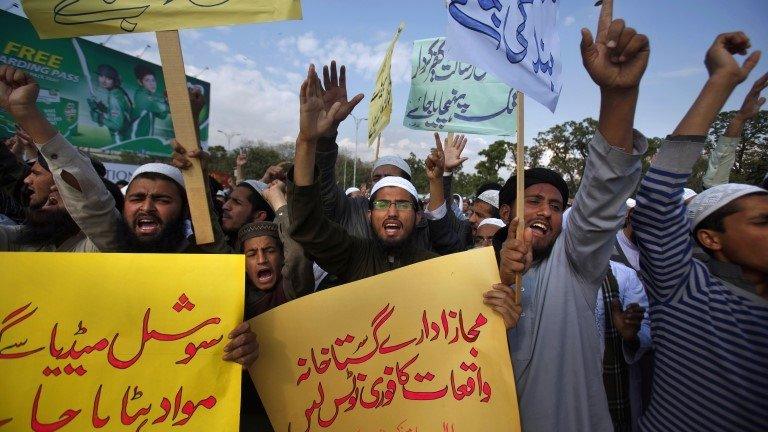Could a student's death change Pakistan's blasphemy laws?
- Published
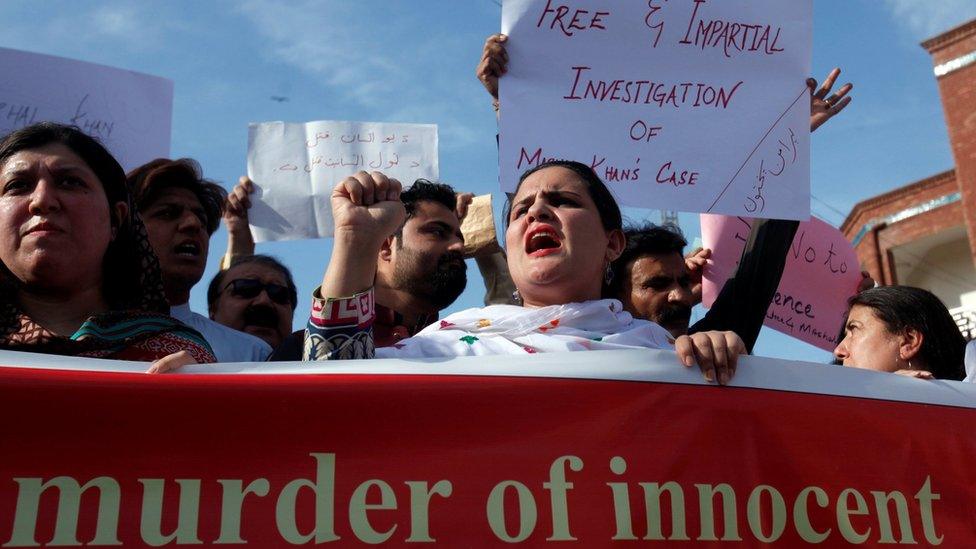
The mob killing has shocked many in Pakistan
The brutal mob killing of a university student who was accused of committing blasphemy has caused outrage in Pakistan.
The country has strict and controversial blasphemy laws - which human rights groups say are often used to unfairly target religious minorities or settle personal scores. Could this case prove a turning point?
Who was Mashal Khan?
Mashal Khan was a 25-year-old student of journalism at the Abdul Wali Khan University in the northern city of Mardan.
He described himself on Facebook as a humanist and his social media postings reveal a young man interested in promoting women's rights and opposing racism.
His room on the university campus was decorated with posters of Che Guevara and Karl Marx, as well as slogans such as "Freedom is the right of every individual".
Mashal Khan was killed by a mob of fellow students on campus
Why was he killed?
On 13 April 2017 a mob of hundreds of students marched through the university campus chanting religious slogans as they searched for Mashal Khan.
It is not clear what exactly triggered their accusations of blasphemy. A Reuters report quoted a caretaker at the hostel as saying the previous day Mr Khan had been involved in a heated debate on religion with other students.
A friend of Mashal Khan's told the BBC that Mr Khan had previously been threatened and didn't feel able to express himself openly at university because of the hostile attitude towards him and his views from other students.
In a confession to police that was leaked to media outlets, one of the students accused of being part of the mob said he had long accused Mr Khan and two of his friends of "anti-Islamic views".
The suspect describes being called to a meeting on the morning of the attack to discuss Mr Khan's alleged blasphemy with other students and lecturers.
What happened?
One of Mashal Khan's friends was also present at the meeting and was also accused of blasphemy.
In a statement to police he described reciting an Islamic statement of faith in front of his accusers, who then tried to force him to state that Mr Khan had committed blasphemy, but he refused.
Lecturer Ziaullah Hamdard told private Pakistani TV channel Geo News he tried to warn Mashal Khan the mob was looking for him. But they broke into his hostel and found him in his room.
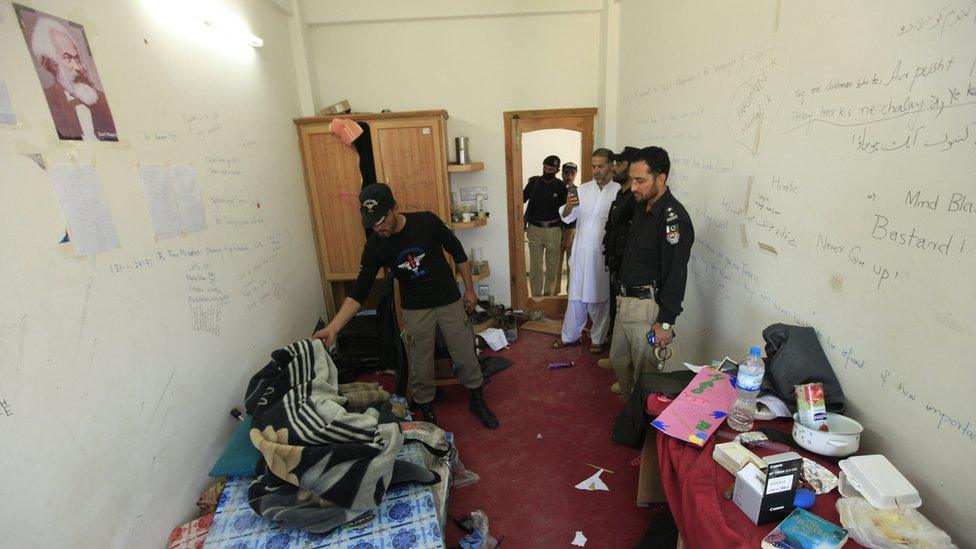
Mashal Khan's room had posters of Karl Marx and Che Guevara
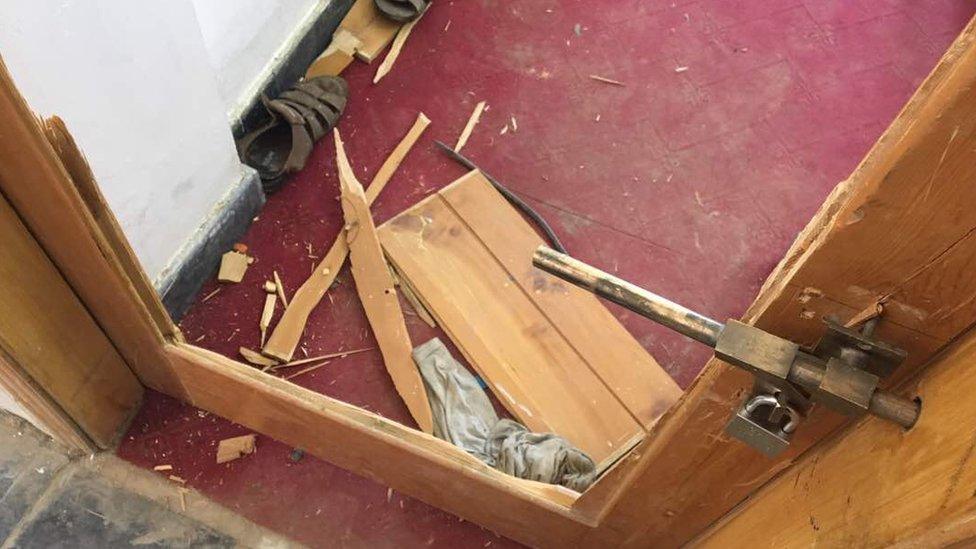
Angry students searched his hostel for him and tracked him down
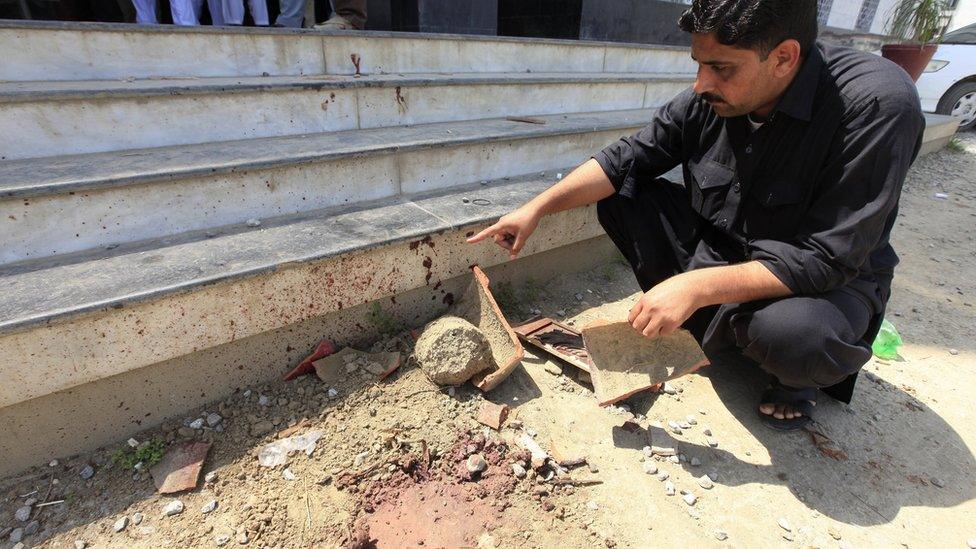
Mashal Khan was taken by the mob and beaten, shot and killed
Mobile phone videos show Mr Khan being beaten and stamped on. According to the post mortem he was also shot. One purported eyewitness wrote on Facebook that Mr Khan protested his innocence until his death and begged to be taken to hospital.
The hostel warden told the BBC how he tried to rescue Mr Khan by picking him up after he was shot to carry him to safety. But the mob grabbed hold and continued beating him, long after he was clearly dead.
A witness told the BBC the mob tried to burn his body, but police managed to retrieve it.
What has the investigation found?
Over 20 people have been arrested, including a number of university employees. Leading figures of local branches of student political parties have also been linked to the mob attack.
Police say they are also searching for a man identified as a local councillor for Imran Khan's PTI political party. He is seen in a video, as the mob celebrates the killing, saying anyone who reveals who shot Mashal Khan is a "traitor".
Mashal Khan's friend has told police the university administration were "deadly against Mashal Khan" for openly criticising the running of the university in a recent TV interview. One suspect has suggested certain members of staff incited students against Marshal Khan.
University officials say they did everything in their power to save him and they are co-operating fully with the police inquiry.
How have the public reacted?
Blasphemy is legally punishable by death in Pakistan. People have received the death penalty but so far the state has not executed anyone. A number of people accused of blasphemy have been murdered, however.
There is often strong support for harsh punishment of blasphemers. After Mashal Khan's murder it was reported that a cleric in his village refused to lead his funeral prayers and urged others not to attend them.
However, there has been widespread support for Mashal Khan amongst the wider Pakistani public. Many have posted pictures and quotes from Mashal Khan's social media pages in solidarity with him. A number of demonstrations calling for his killers to be punished have been held across the country.
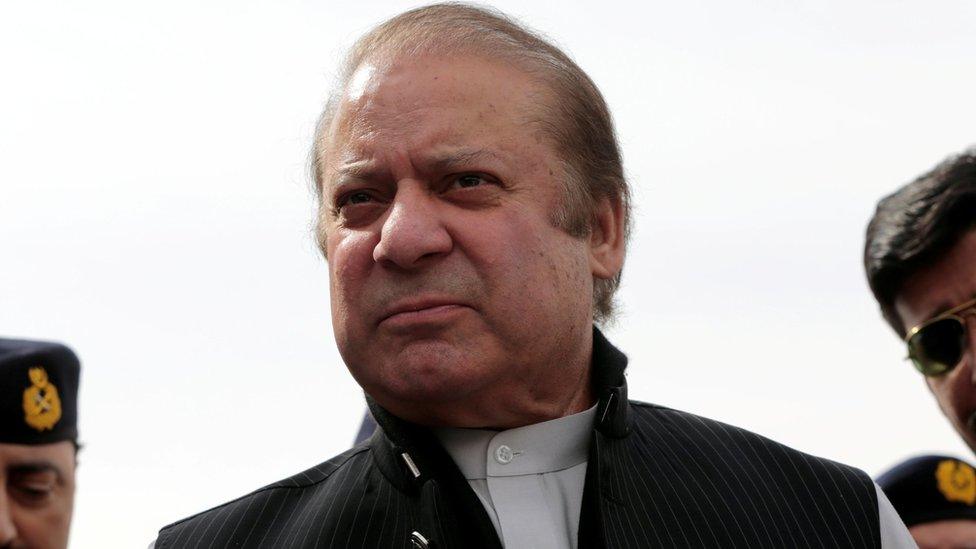
Prime Minister Nawaz Sharif condemned "senseless" mob violence
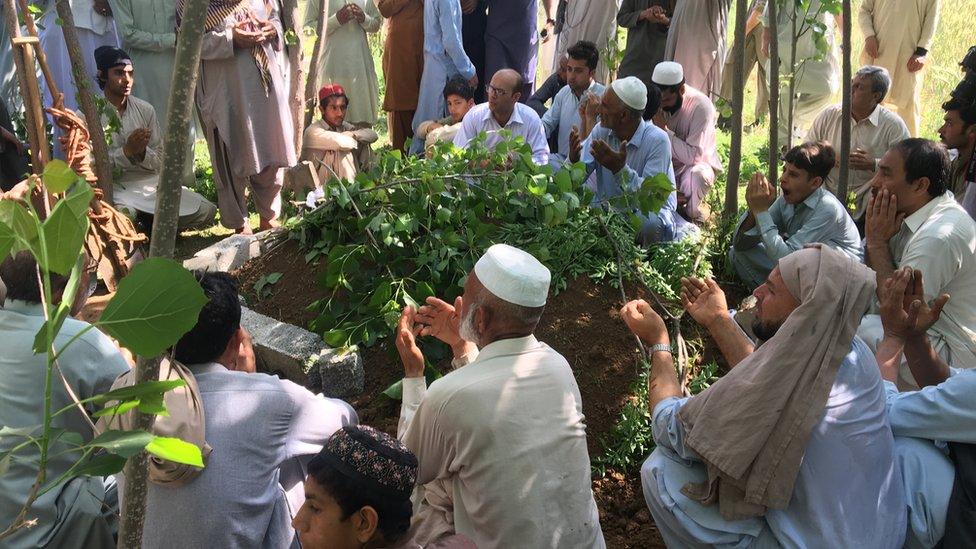
Mashal Khan's father said the government should respond so a similar tragedy does not occur again
What about the politicians?
Ever since Punjab Governor Salman Taseer was murdered by one of his bodyguards for trying to reform blasphemy laws in 2011, politicians have been reluctant to take a firm stance on the issue.
Prime Minister Nawaz Sharif waited two days before issuing a strongly worded statement saying he was "shocked and saddened by the senseless display of mob justice".
Opposition politician Imran Khan was one of the first to condemn the murder and subsequently visited Mashal Khan's family to pay his condolences. On allegations that some of the attackers were affiliated to his party, he said those involved should be treated "with iron hands" regardless of political affiliation. "The entire nation is united on one point that it was a murder and everyone wants the convicts to be punished severely," he said.
Commentators, though, have pointed out that recently the government has been taking a hard-line position on blasphemy. Last month the prime minister called blasphemy "an unpardonable sin", while the Federal Investigation Agency took out newspaper adverts asking the public to inform them of anyone involved in blasphemous activities online.
Leading columnist Cyril Almeida says the authorities have inflamed passions in recent weeks, writing "the state itself has said there are blasphemers hiding among you, the people; find them!".
Could the case change blasphemy laws?
There has been a greater level of sympathy for Mashal Khan than for other victims accused of blasphemy partly because the police have made it clear there is no substance to the allegations against him.
Politicians and clerics have both talked of the need to prevent false blasphemy allegations. Cleric Mufti Naeem from the influential Jamia Binoria madrassa told reporters "blasphemy law is being misused in the country".
But there is less agreement on whether blasphemy laws should actually be changed. Much of the condemnation has revolved around the mob "taking the law into their own hands". Activist Jibran Nasir told the BBC "so far rage has been directed towards calling for tough punishment of the offenders - not reform".
Since Mashal Khan's death, there has been another killing. On Thursday, police arrested three women in north-east Pakistan for killing a Shia man accused of blasphemy in 2004 by a hard-line conservative group. He had recently returned to Pakistan from overseas to fight the case.
Mashal Khan's father told the BBC that he hoped for a strong government response, to ensure no other family experiences a similar tragedy.
- Published15 April 2017

- Published13 April 2017
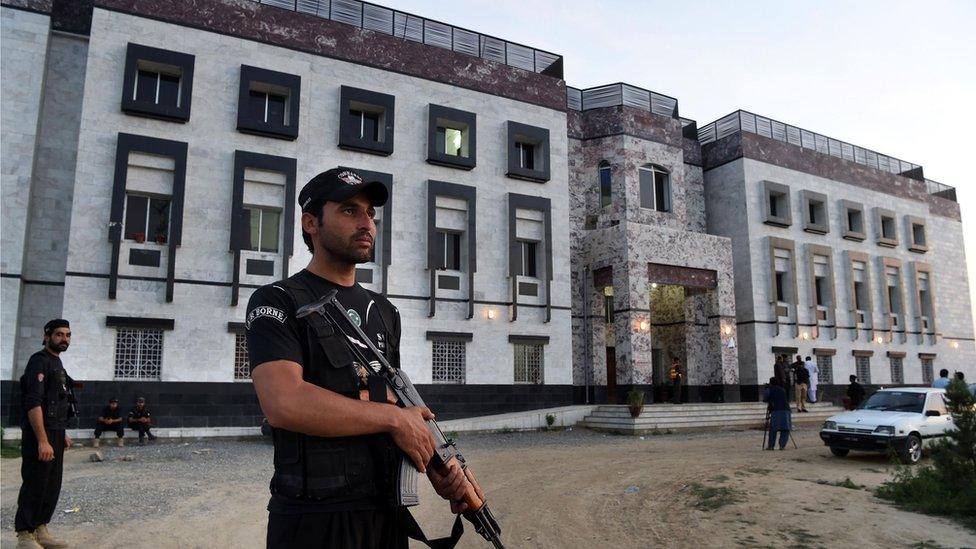
- Published17 March 2017
